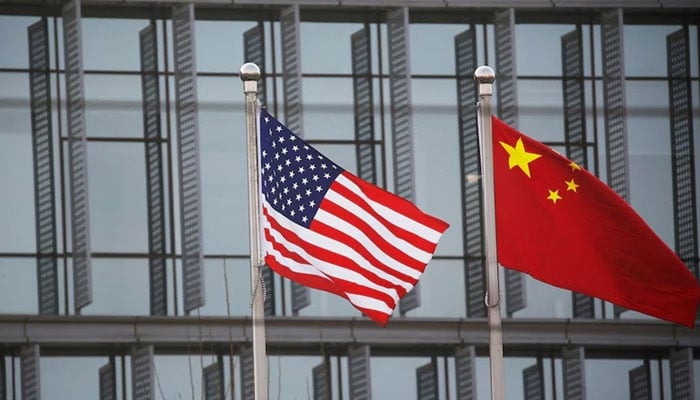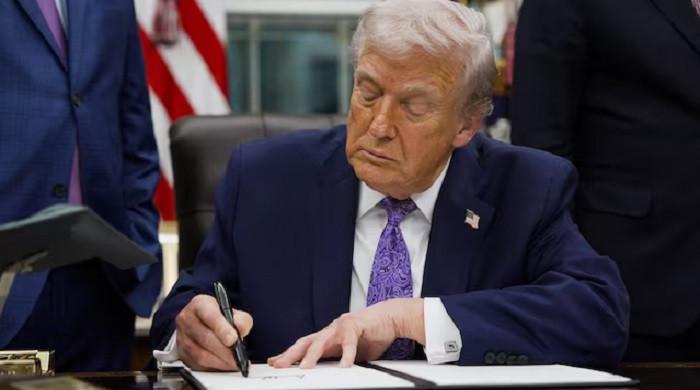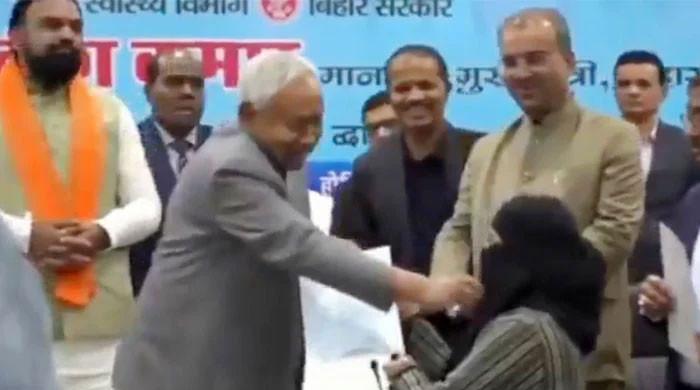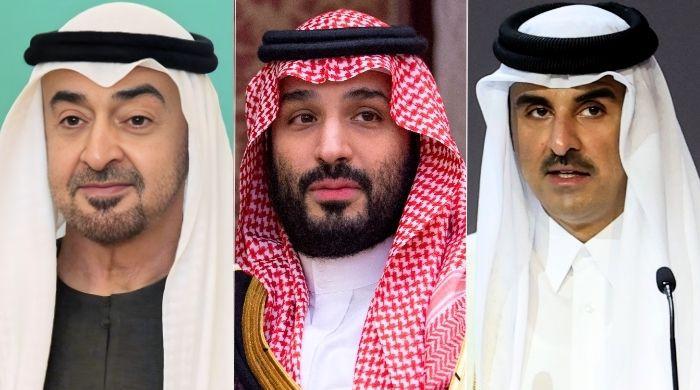Illegal, unilateral: China on US sanctions over Ukraine war
Chinese official terms Washington's move as "selfish", says international community will never accept it
August 27, 2024

BEIJING: Ahead of White House National Security Adviser Jake Sullivan's arrival for high-level talks, China on Tuesday reacted to the United States' sanctions imposed over the Ukraine war terming the move "illegal and unilateral" and "not based on facts".
Earlier today, Sullivan arrived in Beijing for a three-day visit to conduct a new round of strategic communication between China and the US.
Beijing's response, on the other hand, follows Washington's last week imposition of sanctions on more than 400 entities and individuals for supporting Russia's war effort in Ukraine, including Chinese companies that US officials say help Moscow skirt Western sanctions and build up its military.
President Joe Biden's administration has repeatedly warned Beijing over its support for Russia's defence industrial base and has already issued hundreds of sanctions aimed at curbing Moscow's ability to exploit certain technologies for military purposes.
China's special envoy for Eurasian affairs, Li Hui, who has done four rounds of shuttle diplomacy, opposed the sanctions at a briefing for diplomats in Beijing after the latest round of meetings with officials from Brazil, Indonesia and South Africa.
"A particular country uses the crisis […] to shift blame in an attempt to fabricate the so-called China responsibility theory and threatens countries that have normal economic and trade ties with Russia with illegal and unilateral sanctions," said Hui.
The Chinese official did not name the US, but Beijing's commerce ministry said on Sunday it strongly opposed the sanctions and the foreign ministry has expressed similar opposition to previous rounds of curbs.
Last week's sanctions include measures against companies in China involved in shipping machine tools and microelectronics to Russia.
"These words and deeds are totally for their selfish interests and are not based on facts, the international community will never accept them," added Hui.
China has been striving to present itself as a party that is actively looking for a solution to the conflict, despite skipping a Swiss peace conference in June.
After past rounds of talks led by Hui, Beijing put forward proposals on supporting the exchange of prisoners of war, opposing the use of nuclear and biological weapons and opposing armed attacks on civilian nuclear facilities.
In a 12-point paper more than a year ago China set out general principles for ending the war but did not get into specifics.
China and Brazil jointly called this year for Russia-Ukraine peace talks. On Tuesday, the Chinese official expressed the hope that more countries would endorse China's peace efforts.









